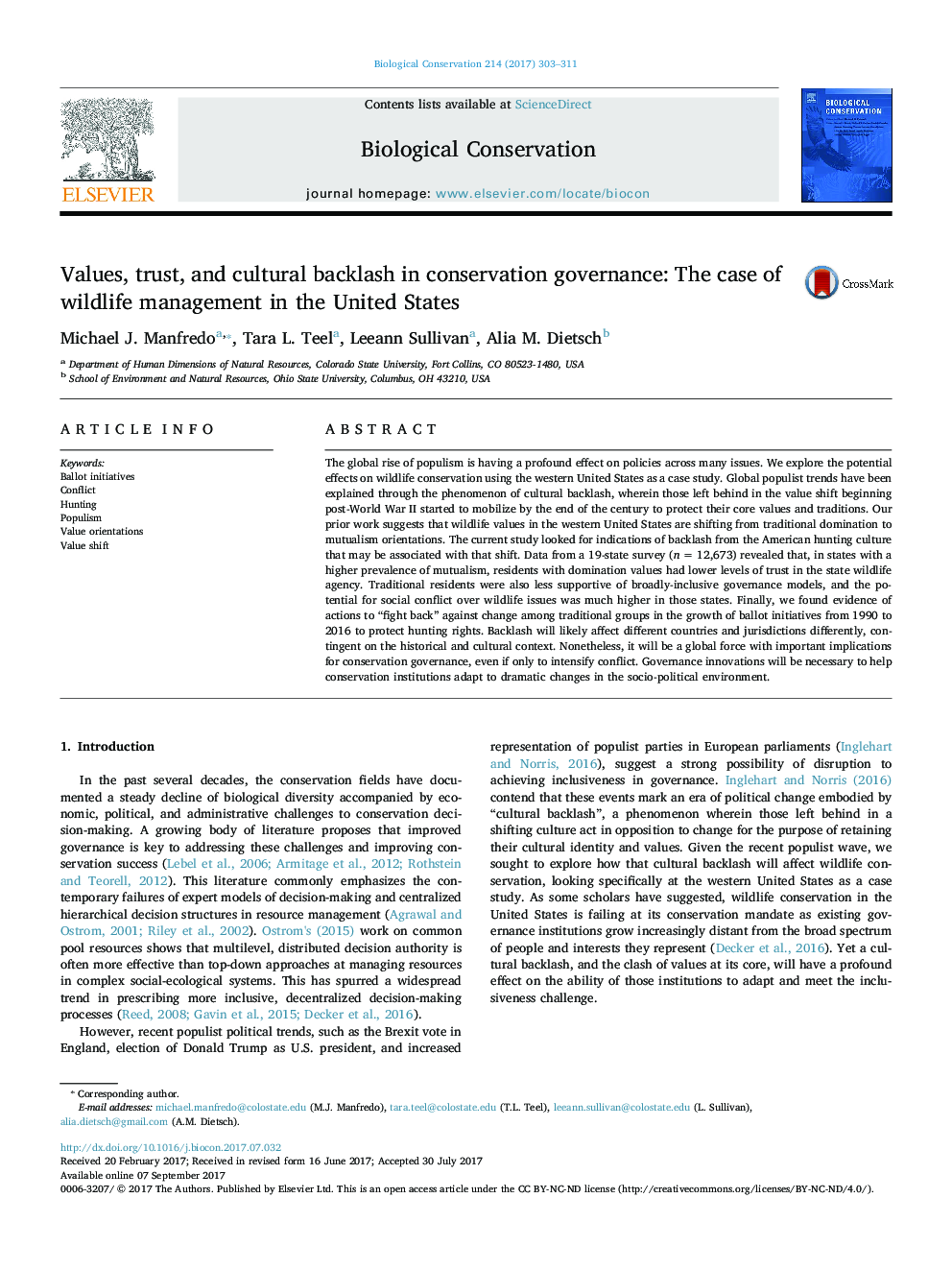| Article ID | Journal | Published Year | Pages | File Type |
|---|---|---|---|---|
| 5742957 | Biological Conservation | 2017 | 9 Pages |
â¢The global rise of populism may limit progressive change in conservation governance.â¢We find indications of backlash from a populist hunting culture in the U.S.â¢This backlash appears to be occurring in response to a shift in wildlife values.â¢Backlash will intensify conflict over wildlife and constrain institutional change.â¢Emerging global threats will necessitate new models of wildlife governance.
The global rise of populism is having a profound effect on policies across many issues. We explore the potential effects on wildlife conservation using the western United States as a case study. Global populist trends have been explained through the phenomenon of cultural backlash, wherein those left behind in the value shift beginning post-World War II started to mobilize by the end of the century to protect their core values and traditions. Our prior work suggests that wildlife values in the western United States are shifting from traditional domination to mutualism orientations. The current study looked for indications of backlash from the American hunting culture that may be associated with that shift. Data from a 19-state survey (n = 12,673) revealed that, in states with a higher prevalence of mutualism, residents with domination values had lower levels of trust in the state wildlife agency. Traditional residents were also less supportive of broadly-inclusive governance models, and the potential for social conflict over wildlife issues was much higher in those states. Finally, we found evidence of actions to “fight back” against change among traditional groups in the growth of ballot initiatives from 1990 to 2016 to protect hunting rights. Backlash will likely affect different countries and jurisdictions differently, contingent on the historical and cultural context. Nonetheless, it will be a global force with important implications for conservation governance, even if only to intensify conflict. Governance innovations will be necessary to help conservation institutions adapt to dramatic changes in the socio-political environment.
